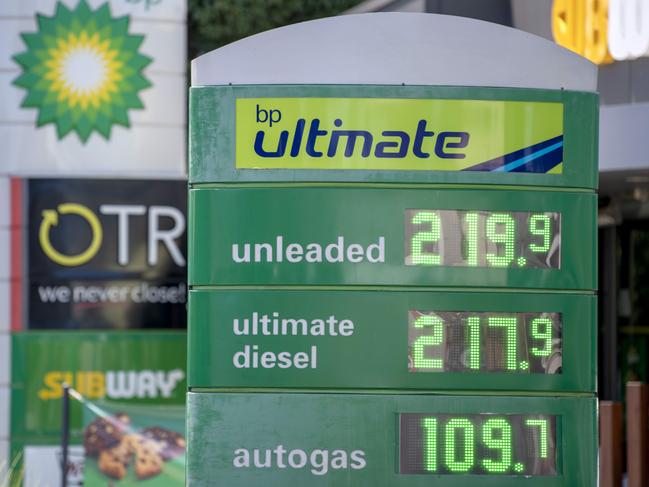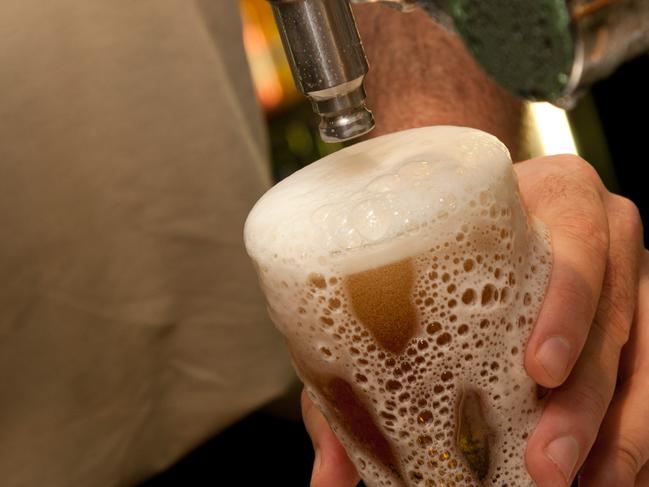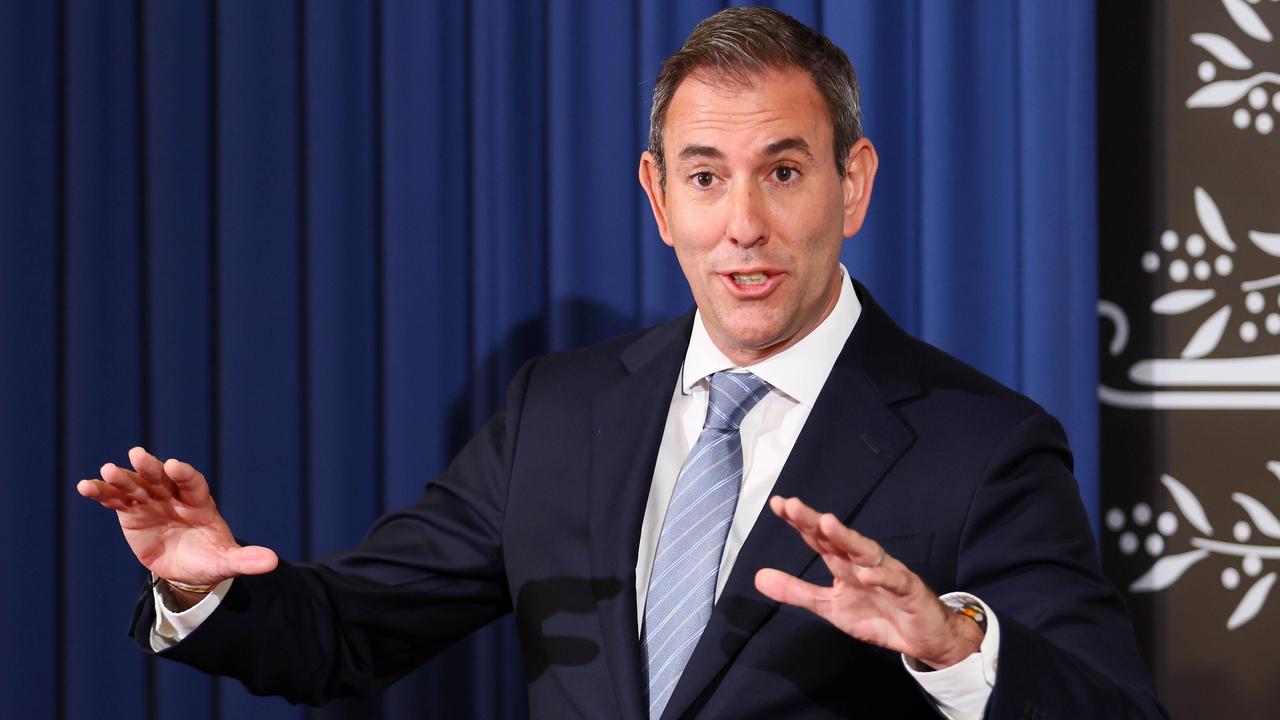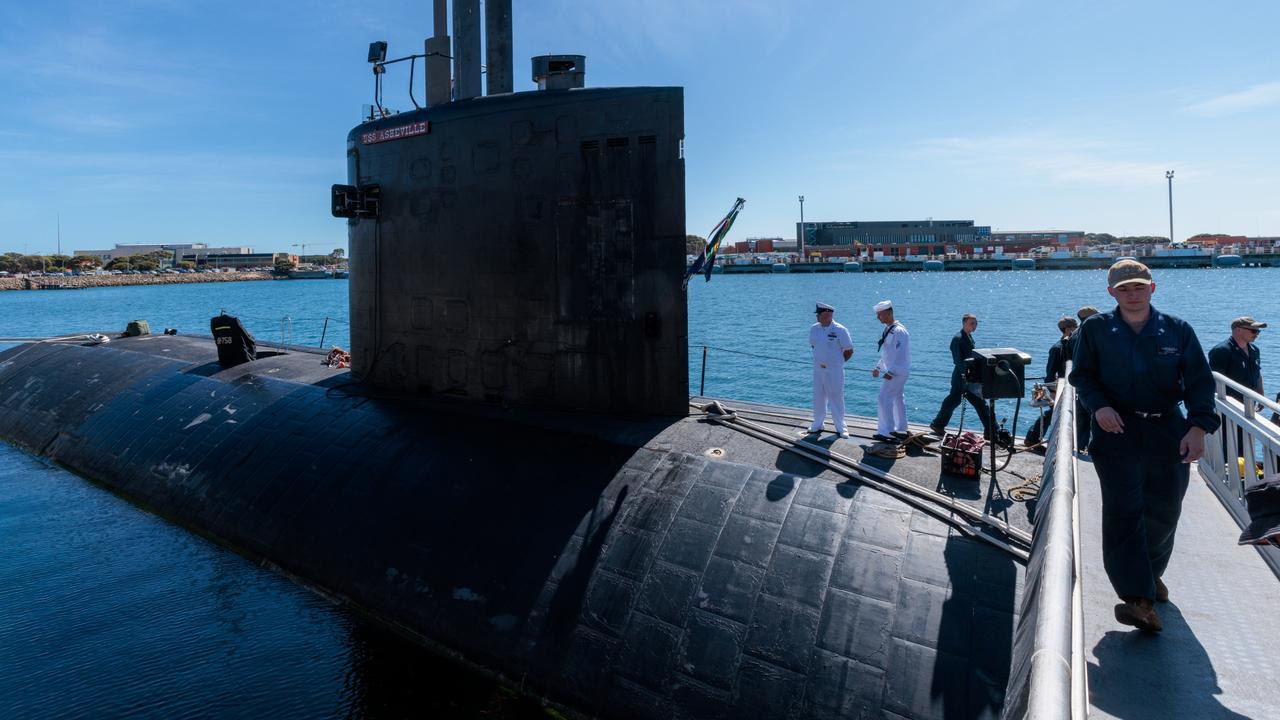Federal budget 2022: Winners and losers revealed
The Morrison government has unveiled its pre-election budget. Here’s who has come out on top, and who’s missed out.
Federal Budget
Don't miss out on the headlines from Federal Budget. Followed categories will be added to My News.
Treasurer Josh Frydenberg had to strike a tricky balance with this pre-election budget.
Spend enough to woo back voters considering Labor, while also not further fuelling already-high inflation levels and prompting an early interest rate hike.
He’s decided on plenty of cash splashes, with relief for sky-high petrol prices and a handout for pensioners, welfare recipients and low-to-middle income earners.
But people who love beer won’t be happy and strained public hospitals have also missed out on extra funds.
Here are this year’s winners and losers.
WINNERS
Motorists
Drivers will be given much-needed help with sky high petrol prices. The fuel excise – which charges motorists 44c a litre – will be slashed in half for six months. The 22c cut will kick in at midnight on Tuesday, providing relief to households being charged upwards of $2.20 a litre within two weeks when it flows through to the bowsers. A family with two cars who fills up once a week could save about $30 a week or $700 over six months.
Low to middle income earners
About 10 million Australians earning less than $126,000 will get a special one time $420 “cost of living tax offset” in their pockets this year. Combined with the $1080 low-to-middle income tax offset that could mean up to $1500 extra in people’s pockets when they lodge their returns from July 1 or $3000 for a couple. But the LMITO, often referred to as the “lamington”, introduced in 2018, will come to an end after this financial year.
Pensioners and welfare recipients
Pensioners, the unemployed, veterans and concession card holders will receive a one-off cash bonus of $250 to help with soaring cost of living pressures. It will land in six million people’s bank accounts “within weeks” and before the expected May election. This group will also benefit from cheaper medicine – needing 12 fewer scripts before they get a discount on their prescriptions. It would save them $81.60 if they fill more than 36 scripts in a year.

New parents where the mum is the main breadwinner
Families where new mums are the main salary earner will be much better off under changes to paid parental leave. New dads will be able to share in 20 weeks of payments, instead of giving mums 18 weeks and their partner just two. Families can instead carve it up how best suits them. Single parents will also get the extra two weeks of support. And the threshold to access the payments will be changed to $350,000 for a household. That fixes an outdated measure where a mum who earnt more than $151,350 was ineligible for the payment – even if their partner brought in no money.
Tradies
Apprentices in priority areas like construction and carpentry will get a $5000 cash payment over their first two years of employment.
Small businesses
Small businesses will be able to claim $120 for every $100 spent on digital technologies like cloud computing, eInvoicing, cyber security and web design. They’ll also be able to claim an extra 20 per cent on training up their staff.
Cancer sufferers
Women battling one of the rarest forms of cancer will be able to access to the life-extending drug Trodelvy under the PBS, saving them up to $80,000 per treatment. A $40.7m package has also been announced to increase appointments available for breast, bowel and cervical cancer screening over the next three years.
Defence
Cybersecurity has gotten a massive $10bn boost over the next 10 years to launch Project REDSPICE to fight hackers, spies and kerb foreign interference. Australia’s total Defence spending will reach 2.1 per cent of GDP amid increased threats from China and Russia. That includes $38bn to boost defence forces by 18,500 troops, $10bn for an east coast submarine base, $4.3bn for a new dry dock facility in Western Australia and $875m to upgrade military bases around Australia.
First home buyers
Thousands more first home buyers will be able to get into the market with just a 5 per cent deposit. The Home Guarantee Scheme will be made permanent and be expanded from 20,000 places to 50,000. There will be 35,000 spots allocated to metropolitan areas. In a major change, 10,000 places will go to people wanting to set down roots in a regional area if they haven’t owned a home for the past five years. There will also be 5000 places for single parents who only need a 2 per cent deposit.

Regional Australia
Regional Australians will benefit from more than $10bn in targeted spending this budget. More than $7bn will be spent on an “investment pipeline” in booming export areas in the Northern Territory, central and north Queensland, the Pilbara in WA and the Hunter Region in NSW. Additionally, billions of dollars have been put aside for dams, including $54bn for Hells Gate near Townsville and $483m for Urannah Dam near Mackay. The regions will also receive millions for improving telecommunications and access to health services.
Tourism operators
After being shattered by the pandemic, tourism is set to get a $60m boost through targeted advertising campaigns to lure overseas visitors back Down Under. Of that amount $45m will go to Tourism Australia to increase its marketing activities, with another $15m Tropical North Queensland’s tourism body to promote the Great Barrier Reef. The natural wonder will also have $1bn invested over nine years to help with water quality and invest in groundbreaking science like heat-resistant coral.
Self-funded retirees
More than 1 million self-funded retirees will get more relief on their super savings amid recent volatility in the financial market. The temporary halving of the drawdown rate – which ranges from 4 per cent to 14 per cent depending on age - has been extended. It means retirees don’t have to withdraw as much to still be eligible for tax-free status on their earnings.
Women with endometriosis
One in nine women – including Prime Minister Scott Morrison’s wife Jenny – will benefit from $58m in endometriosis funding, part of which will go toward creating specialised clinics in every state and territory. Reproductive-aged women will also be able to get Medicare-funded access to new pelvic MRI scans.
LOSERS
Beer drinkers
Brewers and pubs who had campaigned for a 50 per cent reduction in the federal excise on beer poured at the bar will be sorely disappointed – nothing was mentioned in the budget despite the hospitality sector struggling through the pandemic. And that means cheaper beer won’t be passed on to patrons.
The Labor Party
The cash splash might be enough to sway voters ahead of the election. But if it doesn’t and Labor wins they’ll still be faced with the difficult job of having to jack up petrol prices by 20c in September when fuel excise cut ends. But if it continues the cut it will be accused of not thinking of the budget bottom line – making it a losing situation no matter what happens.
People who are struggling to afford rent
Despite rent soaring 9.7 per cent over the past year, there weren’t any additional funds for affordable housing in the budget. Social and Indigenous housing - which includes help for people struggling with rent and those at risk of homelessness - received $1.9bn for the next financial year, but then only $1.6bn for 2023-24. That’s down from $2bn in 2013-14. There’s concern about this decrease.
Existing homeowners
With all the cash that’s being splashed in this budget interest rates are set to go up – and that will put stress on homeowners trying to pay off their mortgage.
Tradie apprentice bosses
Bosses who employ tradie apprentices will miss out on a 50 per cent of wages being covered during the first year of employment. It will be replaced with a 10 per cent subsidy for the first and second year they’re employed and 5 per cent for the third year.
People with student debt
The Greens had wanted to waive 20 per cent of outstanding student debt each year over five years from next January, instead of proceeding with stage three tax cuts for high-income earners. But no such measure was put in place in the budget. And while the debt is interest free, it is indexed, meaning the amount owed is adjusted annually to reflect inflation – which is rising.
Working families with one kid in care
Families with one child in care won’t get any benefit from the government’s plan to bring forward subsidy changes announced last year by four months to March 7. It will help families with more than one child aged five and under in care. To be eligible families need to have a combined income less than $354,000.

Arts sector
The government has only put $38.3m over the next two years to support the struggling arts sector post Covid – a relatively small amount.
Public hospitals
Despite the Covid pandemic putting massive strain on surgery wait lists, the budget hasn’t increased funding for public hospitals – despite campaigns to lift federal funding to 50 per cent.
Originally published as Federal budget 2022: Winners and losers revealed




